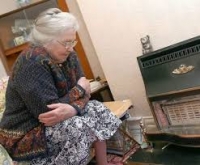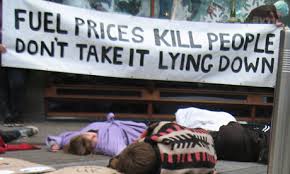Fuel Poverty - EU Takes Action
Tuesday 19 April, 2016 Written by EU Press Service
Member states should declare a moratorium on winter heating disconnections, so that no household can be cut off from energy in the cold, says a European Parliament resolution voted on Thursday. To step up the fight against poverty in the EU by reducing household energy costs, MEPs call for more support for poor families and further investment in energy efficiency projects to reduce utility bills.
"Energy should be considered an essential commodity as our society is becoming ever more dependent upon it. Proper heating, lighting, cooking, warm water are needed for most basic activities and I also strongly believe that winter heating disconnection moratorium, if adopted by all EU member states, will reduce the deaths and severe health consequences of cold homes during winter time, " said rapporteur Tamás Meszerics (Greens/EFA, HU), whose non-binding resolution which was passed by 310 votes to 73, with 26 abstentions.
MEPs argue that the EU is getting further away from its 2020 strategy goal of bringing at least 20 million people out of poverty in next four years. The European Commission should therefore assess whether minimum income schemes in the EU actually enable households to meet basic needs, says the text.
The fight against the poverty should draw on the best practices developed in national economic, education, employment, energy transport and social policies, but member states should also use EU structural and investment funds more efficiently, in a targeted way, to tackle energy poverty, say MEPs.
Reducing high energy costs
Parliament suggests that consumers should have access to all information necessary to make educated choices about their energy consumption. In parallel, energy providers should include information in their bills to households on ways to reduce consumption and increase efficiency.
Finally, MEPs regret that EU rules on energy efficiency and energy performance of buildings are not used to their full potential, especially when plans to renovate badly built social housing projects are not carried out. The European Commission should therefore seek in its review ways to strengthen the legislation, so that member states are encouraged to include social aims in their energy efficiency schemes.
ABC Comment: Poor households spend the largest share of their income on food, housing and utilities. According to EU statistics on income and living conditions 10% of citizens had arrears on utility bills in 2015, 12% were unable to keep their homes adequately warm in 2014, while 16% of the population were living in dwellings with leaking roofs and damp walls in 2014.
Between 2008 and 2013, the number of poor people in the EU rose from 117 million to 122.6 million: 16.7% of the population were at risk of poverty after social transfers, 9.6% were in a situation of serious material deprivation and 10.7% of households were considered to have very low work intensity.

Leave a comment
Make sure you enter all the required information, indicated by an asterisk (*). HTML code is not allowed.
Join
FREE
Here










